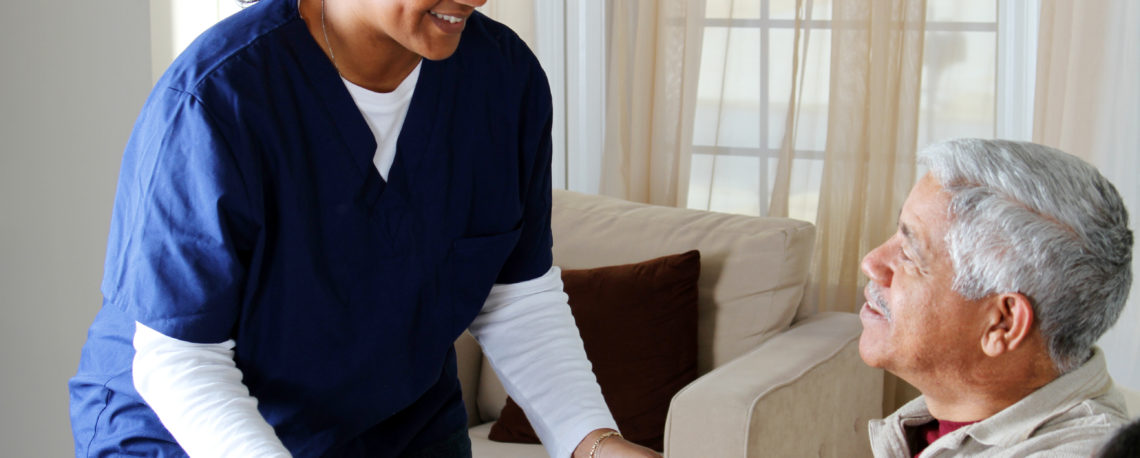
Personal Care Attendant
This program is designed to provide each student with caregiver basics and food handler safety. This training appeals to students who are interested in pursuing a career in an assisted living, group care homes, home health agencies and personal care attendant agencies. The labor market looks bright for caregivers.
Personal Care: is an overview of procedures for providing personal hygiene, body mechanics, resident privacy issues, promoting independence, hand hygiene. 1 Hour
How to Communicate Effectively with Someone Who Has Aphasia: Defining communication and developing good communication skills. Verbal and Non-Verbal Communication. 1 Hour
Nutrition and Meal Preparation for the Older Adult: Nutritional needs of the older adult, common serving sizes, signs of malnutrition and prevention, shopping and meal preparation. 1 Hour
How to Communicate Effectively with Someone Who Has Hearing Loss: Verbal and nonverbal communication. Asking open ended questions, active listening, pacing the conversation. 1 Hour
Essential Bedrest Skills: Understanding the importance of repositioning a resident at regular times. How to recognize, report to supervisor, and prevent pressure ulcers. Documentation. 1 Hour
Infection Control: Understanding standard precautions, good hand hygiene and the use of gloves. Stopping the spread of infection. 1 Hour
A Guide to Being a Companion Homemaker: Ensuring companion and home safety. Effective housecleaning. Laundry and ironing. 1 Hour
Safety in and Around the Home: Fall Prevention: Falls and the older adult. The goal of fall prevention. Fall prevention for care providers. Gait belt use. 1 Hour
Body Mechanics and Back Safety: Understanding proper posture and the principals of body mechanics. Understanding your limits
Medical Emergencies and Emergency Preparedness: Understanding emergency evacuation methods. Recognize medical emergencies and reporting. Documentation. 1 Hour
Caring for Someone with Early to Mid-Stage Alzheimer’s Disease: How Alzheimer’s affects the language and techniques to communicate more effectively. Review of verbal and nonverbal communications. Understanding the disease helps develop positive attitudes and care. 1 Hour
Caring for Someone with Mid to Late-Stage Alzheimer’s Disease: Learning core principles for dementia care. Dealing with challenging behaviors. Disease progression. 1 Hour
HIPPA: Understanding the Privacy Act of HIPAA and how to use it in your daily work. 1 Hour
Abuse and Neglect: Identifying the different forms of elder abuse and the signs and symptoms of each form. How to report suspected elder abuse. 1 Hour
CPR/AED/Basic First Aid: Understanding the signs and symptoms of stroke and heart attack. Who to call for help? How to administer CPR until help arrives. Limits of administering basic first aid and who to report the injury to. Documentation. Upon successful completion, a 2yr Basic CPR/AED/First Aid Card. 2 Hour
Carson City Food Handlers card: This training is online and at the successful completion of the training the student will be awarded a 3yr Food Handlers Card. This online training costs $15.00 and will be paid for by All About Caring. 2 Hour
Developing Cultural Competence: The student will learn about cultural diversity. An overview of cultural beliefs that influence healthcare. Tools for developing cultural and diversity competence. 1 Hour
Vital Signs, Pulse Oximeter and Insulin Pens: The student when learn how to do vital signs, use of pulse oximeter and the use of an insulin pen if ordered by the doctor. Diabetes review, recognizing signs and symptoms of normal vs abnormal. When to call the doctor. Documentation. 1 Hour
**Vital Signs, Pulse Oximeter, Glucometer and Insulin Pen training has been legislated into law effective 1 January 2018. All Training for these topics is suggested to be included into this program but may be subject to revisions once the regulations are final.
